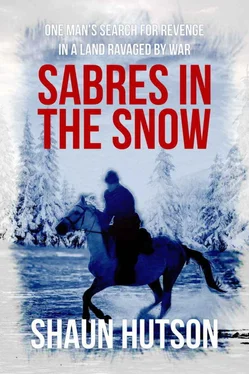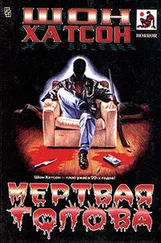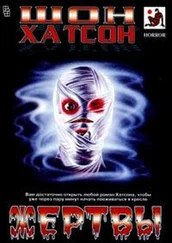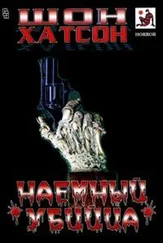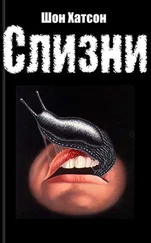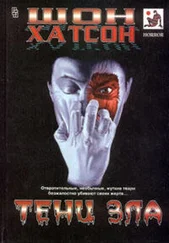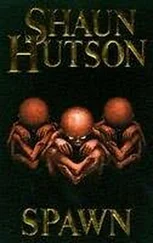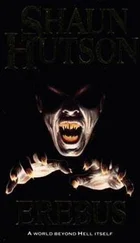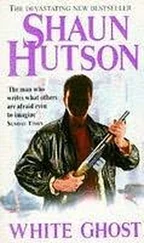“Do you think a German would have spared you?” said Namarov.
Boniak shook his head.
“Is it always like this?” asked the youth.
“Only the first time,” said the major. He patted Boniak on the shoulder. “I warned you it wasn’t the same as killing bear.”
The snowy air seemed to muffle the sounds of gunshots as wounded horses were put out of their misery and Boniak looked up at the grey sky, to the snowflakes which fell like frozen tears.
He wheeled his horse and rode off to find the rest of his squadron.
1
Boniak slept uneasily, tossing and turning beneath the blanket. Dreams plagued him and he awoke with a start, stifling a cry. He rubbed his eyes and looked around him. Other members of the squadron were lying close-by, Rostov amongst them. The commander still had his pipe in his mouth and, for a moment, the youngster thought he was awake but as Boniak got to his feet, he peered over to see that his superior was sleeping. Mig lay close-by, snoring like a fog horn. One of the other cossacks dug him in the ribs and he shut up.
Boniak stood over the glowing embers of the fire, trying to warm his hands but it was as if the freezing night was sucking the warmth from the fire and digesting it. Powdery flecks of snow still gusted into his face, brought by the wind which hissed in the white-covered branches of nearby trees.
An owl hooted, its call startling a horse tethered to the tree. The animal whinneyed and Boniak saw one of the cossack guards walk across to it, pat its muzzle and whisper a few words to it. All the animals were standing in long rows, most of them with heads bowed, untethered. Cossacks moved quietly amongst them as they did amongst the sleeping men.
After the encounter with the Germans that morning, Namarov and his men had ridden West through the snow, the major fearfully watching the sky in case the blizzard which threatened should break. By dusk they found this place where they now camped. It was sheltered on one side by trees and, on the other, by the reverse slope of a ridge and offered some protection from the savage climate. The wounded had been treated as far as was possible and even some injured horses had been cared for. More men than horses had been killed in the engagement (about twelve, Namarov had counted) so there were spare animals should any of the cossacks choose to change mounts. Boniak’s own horse had been hurt slightly, a small flesh wound on its rump but it seemed unconcerned and had given him no trouble. He rubbed his hands once more over the remnants of the fire then wandered slowly away, walking up the gentle slope to the top of the crest.
He was surprised to find Namarov there.
The major turned when he heard footsteps approaching, crunching in the fresh snow.
“Trouble sleeping?” asked the officer.
Boniak nodded.
“I’m sorry if I distrubed you,” he said. “If you want to be alone…” He allowed the sentence to trail off.
Namarov smiled and shook his head.
“I was just checking on the guards and the horses. I do it every night. What’s your excuse?”
“I kept thinking about what happened this morning,” the youth told him. “The fight with the Germans.”
“I told you that killing a man was different to killing an animal.”
The youngster shook his head.
“No, I don’t mean that,” he said. “I mean before we attacked, even during the battle, I was so frightened. More frightened than I’ve ever been in my life.”
“You are not alone in your feelings. It doesn’t matter how long a man fights in a war, he never loses his fear,” Namarov said.
“But what about you? Rostov. Kuragin. Do you all feel that fear every time?”
“You would call it fear, Rostov would call it exhilaration,” the officer smiled. “Kuragin might even call it enjoyment but, somewhere inside them they feel the same emotion as you. Except they know it by a different name. Or at least they fool themselves into thinking of it as something other than fear.”
“And you?” asked the boy.
“I don’t want to die, but that doesn’t mean I fear death,” said the officer. “I have nothing to lose any more. Your fear is greater becuase you have more to lose.”
“I was wondering what I would do if I ever came face to face with Kleiser. I used to think it would be easy to kill him, now I’m not so sure.” The youth toyed with the hilt of his sabre.
“Don’t live for the hope that you will find him one day. You may go the rest of your life and never catch up with him. Revenge eats away at a man’s insides, it can destroy him if it is unfulfilled. If you meet Kleiser you will have no difficulty killing him but don’t let that single thought occupy your mind.”
Boniak sighed.
“But he murdered my parents, I will be failing them if I don’t kill him,” he said.
“And if someone gets to him before you. Will you feel cheated?”
“Yes.”
“Then you have a way to conquer your fear my young friend,” Namarov said, smiling. “You live for vengeance. Then make sure you think about that the next time we meet up with some Germans.” He pointed at the pouch on the youth’s belt which contained the bear claws. “There are all the memories you need. Guard them.”
He patted the boy on the shoulder and wandered off, back down the slope, leaving Boniak alone on the crest of the ridge. The boy opened the pouch and took out three or four of the claws, gripping them tightly in his fist. The vision of Kleiser swam into his mind and he clenched his fist tighter, hardly noticing when one of the claws punctured his palm. when he opened his hand again, a thin dribble of blood was oozing from the gash but Boniak ignored it. He dropped the claws back into the pouch and wandered back down the slope towards the barely glowing clutch of camp fires.
2
As the cossacks rode further West, the land flattened, only occasionally interrupted by the slight undulations of hills. Trees too grew more sparsely. They seemed to huddle together in groups as if seeking protection from the biting wind which swept across the white-blanketed landscape. Grey cloud rolled by menacingly overhead and most of the cossacks rode with scarves pulled over their faces to shield them from the worst ravages of the elements.
However, the worst wind and snow were not sufficient to cover the tyre tracks which Ammasova pored over, holding his horse by its reins whilst he knelt in the snow scanning the tracks with an expert eye.
“It’s difficult to tell how old they are because of this damned wind blowing snow over the marks,” said the cossack, brushing away some of the powdery substance.
Namarov leant over and pointed at something dark.
“What’s that?” he said and Amassova touched the substance with one finger tip.
He sniffed it, rubbing it between thumb and index finger.
“Oil,” he announced. “And it’s pretty fresh. They can’t be more than five or six miles in front of us.” The cossack swung himself back into the saddle and, at an order from Namarov, the column moved forward again.
Mig was the first one to notice the smoke.
“Look,” he shouted, pointing to a rising pall of black vapour and all eyes followed his pointing finger.
Namarov waved his men forward and they broke into a canter, the three squadrons separating until they were riding in their familiar triangular formation.
Boniak saw the smoke now and he glanced at Petrovski who was riding beside him.
“What do you think it is?” the youth asked, his voice almost lost beneath the jingling bits, rumbling hooves and whistling wind. His companion shook his head slowly.
“There are lots of small villages in this area,” he said, cryptically.
Читать дальше
